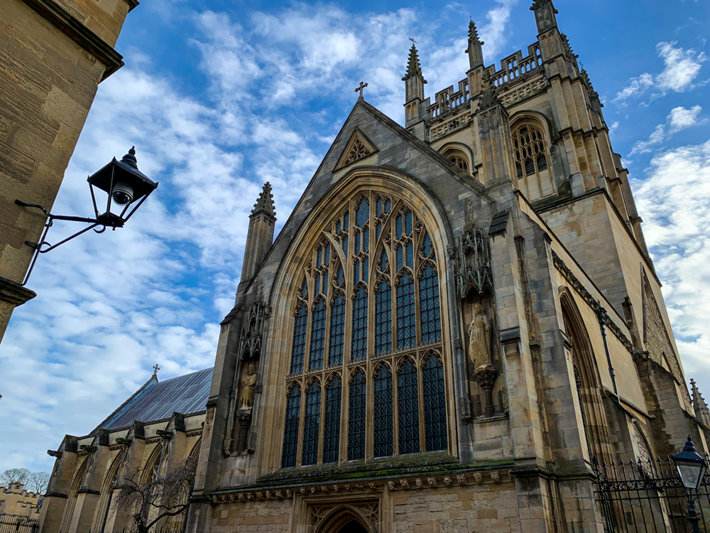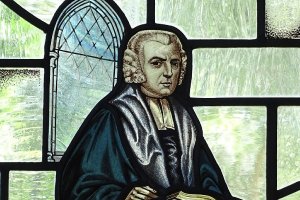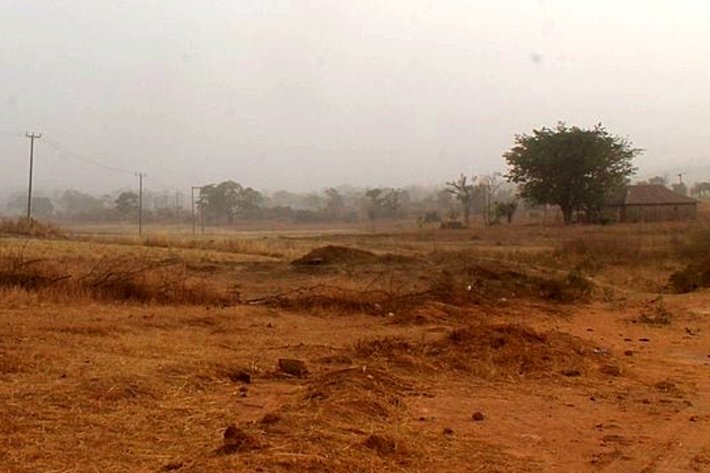A key diocese of the Church of England is adding another ritual to its liturgy for members who are baptized and confirmed as Christians: a vow to protect the environment as part of the church’s conduct of public religious worship.

The new rite, considered to be the first of its kind in Britain, is in the process of being formalized in the church’s Oxford diocese.
Supported by the bishop of Oxford, the Right Reverend Steven Croft, the commitment will call on baptized or confirmed members of the church to “strive to safeguard the integrity of creation, and sustain and renew the life of the Earth.”
In a June 11 address to the Diocesan Synod, Croft, a member of the House of Lords select committee for the environment and climate change, issued a stark warning. “We have only a limited time to take action,” he said. “The world is not at present on course for net zero admissions by 2050 and limiting global warming to 1.5 degrees. That target is slipping away from us.”
“We should be in no doubt whatsoever that there is a strong and deep possibility of change: this can be done,” he said. “I go back to the image of the gardener both in Genesis and in our own experience. We know how to work with creation to do remarkable and beautiful things.”
The initiative whereby the Church of England, Britain’s largest religious institution, takes a moral and spiritual position to tackle the climate crisis comes at a time of increasing disquiet among religious leaders over the ecological future of the planet.
Earlier this year, former Archbishop of Canterbury Rowan Williams and 67 other Anglican and Catholic bishops were among more than 500 church leaders across Britain who signed a letter to Prime Minister Boris Johnson and Chancellor of the Exchequer Rishi Sunak, urging the government to lead a rapid transition from fossil fuels to clean energy as part of the country’s “new energy security strategy.” Christian activists have also been at the forefront of a string of climate change protests in recent years.
The Diocese of Oxford recently approved investments totaling nearly $12 million (£10 million) on environmental projects aimed at reducing the carbon footprint of its vicarages and offering better care to clergy. The expenditure is part of a bold plan to help the diocese attain zero carbon emissions by 2035. It is among 10 Church of England dioceses that have stripped their investments in fossil fuel companies and are committed not to invest in coal, oil and natural gas in the future.
On a broader level, the Church of England has attracted criticism for dragging its feet over severing financial ties with the fossil fuel industry. The church began cutting investments in coal and other major polluting industries in 2015. It then pledged in 2018 to divest from high-carbon companies that were “not aligned with the goals of the Paris agreement by 2023.” As that deadline looms, the church has admitted it is still “engaging” with major oil and gas companies instead of terminating all such holdings.
“The church should be moving quickly and showing moral leadership, and is just not going fast enough,” Chris Manktelow, a member of the Young Christian Climate Network, told the Guardian. The network advocates for the fair treatment of communities most adversely impacted by climate change.
The global environmental organization Greenpeace lauded the Oxford diocese decision. “The diocese of Oxford is moving away from fossil fuels, which is essential, but this liturgical change goes deeper,” a Greenpeace spokesperson said late last month. “Today’s lesson is that, in a climate and nature emergency, you need to make environmental considerations central to your project right from the very beginning and keep them in mind the whole way through. That sounds very much like wisdom worth listening to.”
_______________
From its beginnings, the Church of Scientology has recognized that freedom of religion is a fundamental human right. In a world where conflicts are often traceable to intolerance of others’ religious beliefs and practices, the Church has, for more than 50 years, made the preservation of religious liberty an overriding concern.
The Church publishes this blog to help create a better understanding of the freedom of religion and belief and provide news on religious freedom and issues affecting this freedom around the world.
The Founder of the Scientology religion is L. Ron Hubbard and Mr. David Miscavige is the religion’s ecclesiastical leader.
For more information visit the Scientology website or Scientology Network.


